FEATURED SPEAKERS:
|
 |
REWIRED: UNDERSTANDING THE iGENERATION AND THE WAY THEY LEARN
Larry D. Rosen, PhD Professor, Research Psychologist, Department of Psychology, California State University, Dominguez Hills Author, REWIRED: REWIRED: Understanding the iGeneration and the Way They Learn (2010) and Me, MySpace and I: Parenting the Net Generation (2007); Co-Author, Technostress (1997)
|
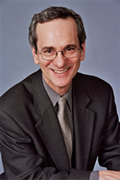 |
iBRAIN: THE TECHNOLOGICAL ALTERATION OF THE STUDENT MIND
Gary W. Small, MD Director, Memory and Aging Research Center, Semel Institute for Neuroscience ghj_amp Human Behavior, University of California, Los Angeles (UCLA); Co-author, iBrain: Surviving the Technological Alteration of the Modern Mind (2009), The Longevity Bible (2007), and The Memory Prescription (2005)
|
 |
OVERCOMING THE GLOBAL ACHIEVEMENT GAP
Tony Wagner, PhD Co-Director, Change Leadership Group, Harvard University Graduate School of Education; Author, The Global Achievement Gap: Why Even Our Best Schools Don't Teach the New Survival Skills Our Children Need-And What We Can do About It (2009) and Making the Grade: Reinventing America's Schools (2001); Co-Author, Change Leadership: A Practical Guide to Transforming Our Schools (2006)
|
 |
FLAT WORLD AND EDUCATION: TRANSFORMING TEACHING, LEARNING AND ASSESSMENT
Linda Darling-Hammond, EdD Charles E. Ducommun Professor of Education, Faculty Sponsor, Stanford Teacher Education Program School of Education, Stanford University; Author, The Flat World and Education: How America's Commitment to Equity Will Determine Our Future (2010), Co-Author, Powerful Learning: What We Know About Teaching for Understanding (2008) and Preparing Principals for a Changing World (2009); Co-Editor, Preparing Teachers for a Changing World: What Teachers Should Learn and Be Able to Do (2007) and Teaching as the Learning Profession (1999)
|
|
|
|
|
Learn from a Distinguished Faculty
|
|
EDUCATING THE iGENERATION: GLOBAL SKILLS, REFORM ghj_amp TESTING
|
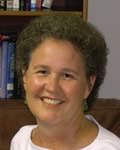 |
Flat World and Education: Transforming Teaching, Learning and Assessment
Linda Darling-Hammond, EdD, Charles E. Ducommun Professor of Education; Faculty Sponsor, Stanford Teacher Education Program, Stanford University School of Education; Author, The Flat World and Education: How America's Commitment to Equity Will Determine Our Future (2010); Co-Author, Powerful Learning: What We Know About Teaching for Understanding (2008) and Preparing Principals for a Changing World (2009)
|
 |
Overcoming the Global Achievement Gap
Tony Wagner, PhD, Co-Director, Change Leadership Group, Harvard University Graduate School of Education; Author, The Global Achievement Gap: Why Even Our Best Schools Don't Teach the New Survival Skills Our Children Need-And What We Can do About It (2009) and Making the Grade: Reinventing America's Schools (2001); Co-Author, Change Leadership: A Practical Guide to Transforming Our Schools (2006)
|
 |
The Wikification of Knowledge: Implications for Education
Kenneth S. Kosik, MD, Co-Director, Neuroscience Research Institute; Harriman Chair and Professor of Neuroscience Research, Department of Molecular, Cellular and Developmental Biology, University of California, Santa Barbara; Author of "The Wikification of Knowledge" (2008, Nieman Reports)
|
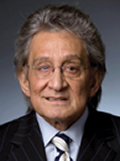 |
Faulty Connections: How School Reform Ignores How the Brain Works
Gerald N. Tirozzi, PhD, Executive Director, National Association of Secondary School Principals; Former, Assistant Secretary of Elementary and Secondary Education, U.S. Department of Education; Co-Author, "Education reform in the United States" (1997, American Psychologist)
|
 |
Mind, Brain ghj_amp Education in the Era of Globalization
Mary Helen Immordino-Yang, EdD, Assistant Professor, Rossier School of Education; Assistant Professor, Brain and Creativity Institute, University of Southern California; Co-Author, "Mind, brain and education in an era of globalization" (2007, Learning and Living in a Global Era)
|
 |
Teaching and Assessing 21st Century Skills
Tony Wagner, PhD, Co-Director, Change Leadership Group, Harvard University Graduate School of Education; Author, The Global Achievement Gap: Why Even Our Best Schools Don't Teach the New Survival Skills Our Children Need-And What We Can do About It (2009) and Making the Grade: Reinventing America's Schools (2001); Co-Author, Change Leadership: A Practical Guide to Transforming Our Schools (2006)
|
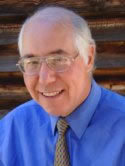 |
From Students to Learners: New Learning Environments for 21st Century Learners
Bob Pearlman, BEE, Strategy Consultant, 21st Century School and District Development; Contributing Author, 21st Century Skills: Rethinking How Students Learn (2010); Author, "Making 21st century schools" (2009, Educational Technology)
|
 |
How is Knowledge Better Learned Through Skills? Implications for and of 21st Century Skills
Charles Fadel, MBA, Global Lead, Education, Cisco Systems; Cisco Board Member at the Partnership for 21st Century Skills (of which Cisco was a founding member); Visiting Practitioner, Harvard University Graduate School of Education; Vice-Chair, Education Committee of the Business and Industry Advisory Committee (BIAC) to the Organization for Economic Co-Operation and Development (OECD); Co-Author, 21st Century Skills: Learning for Life in Our Times (2009)
|
|
UNDERSTANDING THE iGENERATION: BRAINS, LEARNING ghj_amp TEXTING
|
 |
Digital Youth Network: Fusing Online Communities, School and Home Activities to Develop New Media Literacy
Brigid Barron, PhD, Associate Professor of Education; Co-Director, Bermuda Computing Curriculum Project, Stanford University School of Education; Principal Investigator, Digital Youth Network, a research project designed to study how digital technologies are changing the way young people learn, play and socialize, sponsored by The John D. and Catherine T. MacArthur Foundation
|
 |
Rewired: Understanding the iGeneration and the Way They Learn
Larry D. Rosen, PhD, Research Psychologist; Professor, Department of Psychology, California State University, Dominguez Hills; Author, REWIRED: Understanding the iGeneration and How They Learn (2010) and Me, MySpace and I: Parenting the Net Generation (2007); Co-Author, Technostress (1997)
|
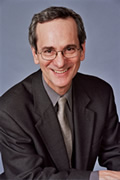 |
iBrain: The Technological Alteration of the Student Mind
Gary W. Small, MD, Neuroscientist; Professor of Psychiatry and Biobehavioral Sciences; Director, Memory and Aging Research Center, Semel Institute for Neuroscience ghj_amp Human Behavior; University of California, Los Angeles (UCLA); Co-Author, iBrain: Surviving the Technological Alteration of the Modern Mind (2009) and The Memory Prescription (2005)
|
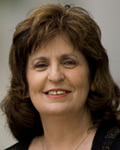 |
Understanding the Digital Generation
Marilee B. Sprenger, MA, Adjunct Professor, Aurora University, Former Teacher; Author, Brain Based Teaching in the Digital Age (2010), The Leadership Brain for Dummies (2010), and The Developing Brain (2008)
|
 |
Youth, Social Networks and Learning: Implications for Education
Christine Greenhow, EdD, Educational Researcher; Assistant Professor of Technology and Social Networking, College of Education, University of Maryland; Visiting Fellow, Information and Society Project, Yale University; Principal Investigator, "Youth and Social Media Research and Development" Project, John S. and James L. Knight Foundation; Co-Author, "Old communication, new literacies: Social network sites as social learning resources" (2009, Journal of Computer-mediated Communication)
|
 |
"Me and MySpace": Parenting the Net Generation
Larry D. Rosen, PhD, Research Psychologist; Professor, Department of Psychology, California State University, Dominguez Hills; Author, REWIRED: Understanding the iGeneration and How They Learn (2010) and Me, MySpace and I: Parenting the Net Generation (2007); Co-Author, Technostress (1997)
|
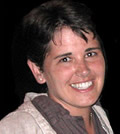 |
Strategies for Teens, Teachers and Young Adults for Social Technologies in Schools
Jennifer H. Selke, PhD, Educational Psychologist; Lecturer in Cognition and Development, Graduate School of Education, University of California, Berkeley; Affiliate Faculty, Berkeley Center for New Media; Researcher on the use of technology by adolescents and young adults
|
|
TEACHING THE iGENERATION: VIDEO GAMES AND VIRTUAL WORLDS
|
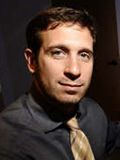 |
Social Learning in Virtual Reality: How Avatars Can Make Us Better Teachers
Jeremy Bailenson, PhD, Founder/Director, Virtual Human Interaction Lab; Associate Professor, Department of Communication; Stanford University; Collaborator, "Virtual Reality Augmentation of Social Skills Training for Autism" Project with USC and UC Davis; Co-Author, "The expression of personality in virtual worlds" (2010, Social Psychology and Personality Science)
|
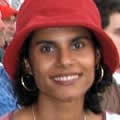 |
It Takes a Virtual Village: Computational Agency Development Among Marginalized Youth
Sneha Veeragoudar Harrell, PhD, Postdoctoral Research Fellow, Education Research Collaborative Division, TERC; Principal Investigator, Project Fractal Village at University of California, Berkeley, a virtual world where at-risk students engage collaboratively in learning
|
 |
Teaching Digital Natives - Partnering for Real Learning
Marc Prensky, MBA, Founder/CEO, Games2train; Internationally-acclaimed Writer; Consultant; Futurist; and Game Designer; Author, Teaching Digital Natives: Partnering for Real Learning (2010), Don't Bother Me, I'm Learning (2005), and Digital Game-Based Learning (2001)
|
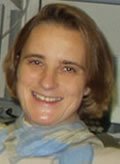 |
Action Video Games as Exemplary Learning Tools
Daphne Bavelier, PhD, Professor, Brain ghj_amp Cognitive Sciences, Centers for Visual Science, and Language Studies; Associate Director, Rochester Center for Brain Imaging; Director, MindSpace Virtual Reality Laboratory, University of Rochester; Adjunct Faculty in Imaging Science, University of Rochester Medical Center; Co-Author, "Increasing speed of processing with action video games" (2009, Current Directions in Psychological Science) and "The development of attention skills in action video games" (2009, Neuropsychologia)
|
 |
Digital Games, Digital Learning
David Williamson Shaffer, PhD, Professor of Learning Sciences, Department of Educational Psychology, University of Wisconsin-Madison; Game Scientist, Wisconsin Center for Education Research; Former Teacher; Author, How Computer Games Help Children Learn (2008)
|
 |
Quest to Learn: Growing a School for Digital Kids
Chloe Varelidi, MFA, Researcher, PETLab (Prototyping Evaluation, Teaching and Learning lab), Parsons, The New York School for Design; Creative Director, Mission Lab, Institute of Play; Game and Curriculum Designer, Quest to Learn School in New York, a new 6-12th grade public school that uses a game-inspired curriculum; author, Space, Time, Play, Computer Games, Architecture and Urbanism: The Next Level (2009)
|
|
TREATING LEARNING PROBLEMS: TRAINING, TECHNOLOGY ghj_amp STRESS
|
 |
Raising Well-Balanced Children in a Fast-Paced Digital World
Denise Clark Pope, PhD, Senior Lecturer, Stanford University School of Education; Founder, Challenge Success; Author, Doing School: How We Are Creating a Generation of Stressed Out, Materialistic, and Miseducated Students (2001)
|
 |
STOMP: Practice Improves Reasoning Skills
Silvia A. Bunge, PhD, Assistant Professor, Dept. of Psychology and Helen Wills Neuroscience Institute, University of California, Berkeley; Researcher, "Structured Training of Mental Processes" video game Project (STOMP); Co-Author of "Dissociable effects of reasoning and speed training in children" (2010, Developmental Science)
|
 |
Clinical Virtual Reality: 21st Century Tools for Childhood Disorders
Albert A. Rizzo, PhD, Research Professor, Department of Psychiatry; Research Scientist; Co-Director, VRPSYCH Lab (Virtual Reality, Psychology, Rehabilitation and Social Neuroscience), Institute for Creative Technologies, University of Southern California; Co-Author, "Virtual reality and pediatric rehabilitation" (2009, Developmental Neurorehabilitation) and "A controlled clinical comparison of attention performance in children with ADHD in a virtual reality classroom compared to standard neuropsychological methods" (2007, Child Neuropsychology)
|
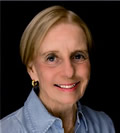 |
Different Brains, Different Learners: Rethinking "Intelligence" for the 21st Century
Jane M. Healy, PhD, Educational Psychologist; Teacher; Reading and Learning Specialist; Former Adjunct Assistant Professor, Cleveland State University; Named twice as "Educator of the Year" by Delta Kappa Gamma; Author, Different Learners: Identifying, Preventing, and Treating Your Child's Learning Problems (2010), Your Child's Growing Mind (2004), and Failure to Connect: How Computers Affect Our Children's Minds -- and What We Can Do About It (1999)
|
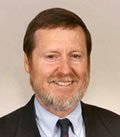 |
Rethinking Learning Disabilities in the Age of Google
David H. Rose, EdD, Founder/Chief Education Officer, Center for Applied Special Technology (CAST); Faculty, Harvard University Graduate School of Education; Educational Design Consultant, Google Literacy Project; Co-Author, Teaching Every Student in the Digital Age: Universal Design for Learning (2002) and Learning to Read in the Computer Age (1998)
|
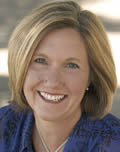 |
The Stressed-Out, Overflowing Student Brain
Martha Kaufeldt, MA, Educational Consultant; former teacher; author of Teachers, Change Your Bait! Brain Compatible Differentiated Instruction (2005) and Begin With the Brain: Orchestrating the Learner-Centered Classroom (1999)
|
|
MULTITASKING MINDS: MEMORY AND DISTRACTED STUDENTS
|
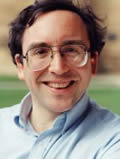 |
Multitasking and Tweens
Clifford I. Nass, PhD, Thomas M. Storke Professor; Director, Communication Between Humans and Interactive Media Lab, Stanford University; Author, The Man Who Lied to His Laptop: What Computers Can Teach Us About Human Relationships (2010); Co-Author, Wired for Speech: How Voice Activates and Advances the Human-Computer Relationship (2005) and The Media Equation: How People Treat Computers, Television, and New Media Like Real People and Places (1996)
|
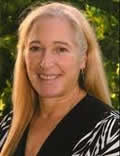 |
Improving Memory and Learning in Distracted, Multitasking Students
Judy Willis, MD, EdM, Board-Certified Neurologist, Middle School Teacher; Adjunct Lecturer, Graduate School of Education, University of California, Santa Barbara; Author, Inspiring Middle School Minds (2009), How Your Child Learns Best (2008), Brain-Friendly Strategies for the Inclusion Classroom (2007), and Research-Based Strategies to Ignite Student Learning (2006)
|
 |
Memory, Learning and Multitasking
Harold Pashler, PhD, Professor of Psychology, Department of Psychology, University of California, San Diego; Co-author, "Mental timing and the central attentional bottleneck" (2010, Attention and Time) and "Predicting students' retention of facts from feedback during study" (2010, Proceedings of the 32nd Annual Conference of the Cognitive Science Society); Author, The Psychology of Attention (1998)
|
 |
Understanding the Mind of Supertaskers
David Strayer, PhD, Professor, Department of Psychology; Co-Director, Applied Cognition Lab, University of Utah; Co-author, "Supertaskers: Profiles in extraordinary multi-tasking ability" (2010, Psychonomic Bulletin and Review) and "Effects of Simulator Practice and Real World Experience on Cell-phone-Related Driver Distraction" (2008, Human Factors)
|
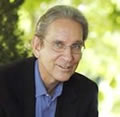 |
Countering the Cyber Life: Getting in Touch with Our Hunter-Gatherer Genes
John J. Ratey, MD, Associate Clinical Professor of Psychiatry, Harvard Medical School; Author, Spark: The Revolutionary New Science of Exercise and the Brain (2008); Co-Author, Delivered from Distraction: Getting the Most Out of Life with ADD (2005)
|
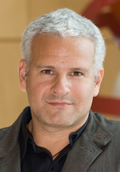 |
The Impact of Distraction and Multitasking on Memory
Adam Gazzaley, MD, PhD, Director, Neuroscience Imaging Center; Associate Professor of Neurology, Physiology and Psychiatry; University of California, San Francisco; Assistant Adjunct Professor, Helen Wills Neuroscience Institute, University of California, Berkeley; Co-Author, "Top-down modulation: The crossroads of perception, attention and memory" (2010, Proceedings of SPIE)
|
|
DIGITAL WORDS: LANGUAGE AND LITERACY IN THE DIGITAL AGE
|
 |
Internet, Videos and Children: Relationships with Reading, Creativity and Academic Performance
Linda A. Jackson, PhD, Professor, Department of Psychology; Research Associate, Media Interface and Networking Design Laboratory, Michigan State University; Co-Author, "A longitudinal study of the effects of Internet use and videogame playing on academic performance and the roles of gender, race and income in these relationships" (2011, Computers in Human Behavior) and "Information technology (IT) use and academic performance" (2010, Computers in Human Behavior)
|
 |
Language and Learning: From the Age of Literacy to the Digital Age
James Paul Gee, PhD, Mary Lou Fulton Presidential Professor of Literacy Studies, Department of Curriculum and Instruction, Arizona State University; Former Professor of Linguistics, Stanford University; Member, National Academy of Education; Author, Women as Gamers: The Sims and 21st Century Learning (2010), What Video Games Have to Teach us About Learning and Literacy (2007, 2nd Edition) and Good Video Games and Good Learning: Collected Essays on Video Games, Learning, and Literacy (2007)
|
 |
Universal Literacy: The Digital Age Engages the Learning Brain
Dominic W. Massaro, PhD, Professor of Psychology and Computer Engineering; Director, Perceptual Science Laboratory; Founder/Chair, Digital Arts and Media Program, University of California, Santa Cruz; Past President, Society for Computers in Psychology; Developer of the computer animated virtual tutor known as Baldi, which is being used as intervention for language learners, including those facing learning challenges such as deafness and autism
|
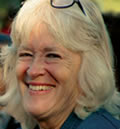 |
Brain Organization for Reading: Software Instruction to Prevent Reading Problems
Jeannine Herron, PhD, Neuropsychologist; Principal Investigator on four grants involving reading research from the National Institute of Child Health and Human Development (NICHD); Former Researcher, University of California San Francisco; Director/CEO, Talking Fingers, Inc.; Director, California Neuropsychology Services; Author, Raising Skilled Readers and Writers (2010); Co-Author, "Computer-assisted instruction to prevent early reading difficulties in students at risk for dyslexia: Outcomes from two instructional approaches" (2009, Annals of Dyslexia)
|
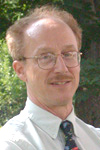 |
Mind, Brain and Emerging Technology for Robust Learning, Literacy and Assessment
Kurt W. Fischer, PhD, Charles Bigelow Professor; Director, Mind, Brain, and Education Program (MBE), Harvard University Graduate School of Education; Past President, International Mind, Brain, and Education Society (IMBES); Editor, Mind, Brain and Education Journal; Co-Author, "Redesigning testing: operationalizing the new science of learning" (2009, The New Science of Learning: Computers, Cognition and Collaboration in Education)
|
 |
Textbooks and E-books as Learning Tools: Implications for the Classroom
David B. Daniel, PhD, Associate Professor, Department of Psychology, James Madison University; Coordinator, Teaching Institute, Society for Research in Child Development; Managing Educator, Mind, Brain and Education Journal; Co-Author, "eBooks or textbooks: Students prefer textbooks" (2010, Computers ghj_amp Education Journal)
|
|
Back to top |









































